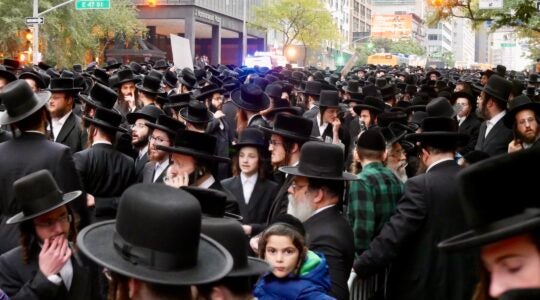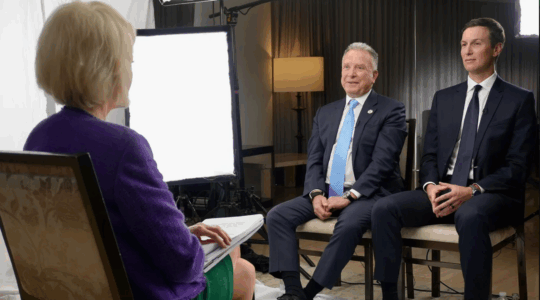(JTA) — The U.S. Supreme Court rejected a constitutional challenge to an Arizona tuition tax credit program that benefits parochial schools, with all three Jewish justices dissenting.
The court on Monday threw out a lawsuit against the program, which provides tax credits to those who donate to "school tuition organizations" that grant scholarships to private schools, including religious schools.
The decision prompted the first written dissent by Jewish Supreme Court Justice Elana Kagan, who said the 5-4 ruling “threatens to eliminate all occasions for a taxpayer to contest the government’s monetary support of religion.”
Kagan used a hypothetical case relating to Jews in her dissenting opinion, writing: "Suppose a State desires to reward Jews — by, say, $500 per year — for their religious devotion. Should the nature of taxpayers’ concern vary if the State allows Jews to claim the aid on their tax returns, in lieu of receiving an annual stipend?"
She was joined in her dissent by the other two Jewish justices, Ruth Bader Ginsburg and Stephen Breyer.
The Anti-Defamation League called the court’s decision "a significant setback for religious liberty in America."
"The Supreme Court has dramatically undercut the ability of taxpayers to protect religion and government by intervening when government money is improperly spent," Robert Sugarman and Abraham Foxman, ADL’s national chair and national director, respectively, said in a statement.
The Orthodox Union, which supports educational vouchers for parochial schools, applauded the decision. The OU had joined several other faith-community representatives in filing a friend-of-the-court brief in support of the constitutionality of the program.
"The high court upheld school choice today," said Nathan Diament, director of public policy for the Orthodox Union. "The principles of government respect for private choices in education and government neutrality in programs which can aid and support such private choices is a critical issue for the Orthodox Jewish community and other American faith communities."
JTA has documented Jewish history in real-time for over a century. Keep our journalism strong by joining us in supporting independent, award-winning reporting.





